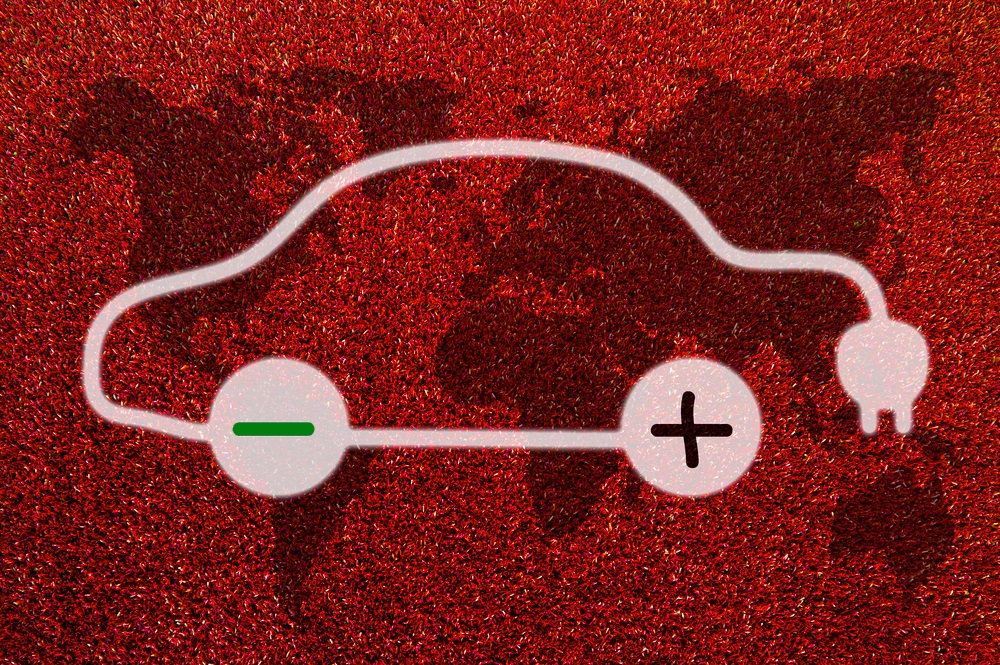Resistance To EV Mandates Intensifies Among Car Dealerships

Table of Contents
Financial Concerns and Infrastructure Limitations
Dealerships face significant upfront costs associated with EV infrastructure upgrades. These costs represent a major hurdle to compliance with increasingly strict EV mandates. The transition to selling and servicing electric vehicles requires substantial investment, often exceeding the resources available to many dealerships, especially smaller, independent ones.
- High initial investment for charging infrastructure: Installing Level 2 and DC fast chargers requires significant capital expenditure, and the cost varies greatly depending on the number of chargers, power requirements, and site preparation.
- Lack of government support for infrastructure development: While some governments offer incentives, many dealerships report insufficient support to offset the substantial cost of EV infrastructure upgrades. This lack of comprehensive financial aid leaves many dealerships struggling to meet the demands of EV mandates.
- Uncertainty about return on investment for EV-related upgrades: The profitability of EV sales is currently less certain than that of traditional gasoline-powered vehicles. Consumer demand, while growing, remains lower than for internal combustion engine (ICE) vehicles. This uncertainty makes it difficult for dealerships to justify the high investment needed for EV infrastructure.
- Need for specialized tools and technician training for EV maintenance and repair: EVs require specialized tools and highly skilled technicians for maintenance and repair. Training programs are expensive and time-consuming, adding another financial burden on dealerships already facing investment pressures.
This financial burden, coupled with the uncertain ROI, is a key driver of resistance to EV mandates among dealerships. The disparity between the investment required and the current level of support creates a significant barrier to the widespread adoption of EVs.
Consumer Demand and Market Readiness
While EV sales are increasing, the current consumer demand may not yet justify the substantial investment required by dealerships. Several factors contribute to this, creating a market reality that fuels resistance to mandates.
- Limited consumer awareness and understanding of EV technology: Many consumers remain unaware of the benefits of EVs or have misconceptions about their performance, range, and charging times. This lack of awareness directly impacts consumer demand.
- Range anxiety and charging infrastructure concerns: Concerns about limited range and the availability of charging stations, especially in rural areas, continue to deter many potential EV buyers. The "range anxiety" factor significantly influences purchasing decisions.
- Higher initial purchase price of EVs compared to gasoline-powered vehicles: The higher initial cost of EVs remains a significant barrier to entry for many consumers, limiting overall demand. Government subsidies can help, but often insufficiently.
- Lack of readily available charging stations, particularly in rural areas: The uneven distribution of charging infrastructure, particularly the scarcity of charging stations in rural areas, further hinders EV adoption and fuels consumer hesitancy.
The lack of sufficient consumer demand, coupled with existing barriers, directly affects the profitability of EV sales for dealerships, further contributing to resistance to mandates that push for faster adoption.
Training and Skill Gaps
EV technology demands specialized skills and knowledge across sales, service, and maintenance. The lack of adequately trained personnel is a significant hurdle for dealerships grappling with EV mandates.
- Shortage of EV-trained technicians: There is a current shortage of technicians with the specialized knowledge to service and repair EVs. This skills gap slows down maintenance and repair times and impacts customer satisfaction.
- Costly and time-consuming training programs: Training programs for EV technicians are expensive and require significant time commitment, adding to the financial burden for dealerships.
- Difficulty attracting and retaining qualified EV specialists: Competition for skilled EV technicians is fierce, making it difficult for dealerships to attract and retain qualified personnel.
- Need for comprehensive training programs covering all aspects of EV technology: Comprehensive, standardized training programs are crucial to equip technicians with the skills required to effectively service and repair EVs.
Government Policies and Support
Government policies play a crucial role in shaping the automotive landscape and influencing dealership preparedness for the EV transition. Subsidies, tax credits, and infrastructure investment programs can significantly alleviate the financial burden on dealerships. Conversely, poorly designed or insufficient policies can exacerbate the challenges they face, intensifying resistance to EV mandates. Effective government intervention needs to be comprehensive, considering both financial incentives and infrastructure development. The lack of strong and consistent support in this area significantly contributes to the resistance.
Conclusion
The resistance to EV mandates among car dealerships is a complex issue rooted in financial constraints, market readiness, and workforce limitations. Addressing these challenges requires a collaborative effort between governments, manufacturers, and dealerships. Overcoming resistance to EV mandates requires a multifaceted approach. Governments need to provide more substantial financial incentives and support for infrastructure development, while manufacturers should focus on improving EV technology and affordability, making them more appealing to consumers. Dealerships, in turn, must proactively adapt to the changing market landscape by investing in training and infrastructure, embracing the future of electric vehicles. Understanding and addressing the concerns surrounding EV mandates is crucial for a successful transition to a sustainable automotive industry. Let's work together to overcome the resistance to EV mandates and accelerate the transition to a greener future.

Featured Posts
-
 Iz Za Potepleniya Gornolyzhnye Kurorty Chelyabinska Zakryty
Apr 30, 2025
Iz Za Potepleniya Gornolyzhnye Kurorty Chelyabinska Zakryty
Apr 30, 2025 -
 Tat Ca Ve Giai Bong Da Thanh Nien Sinh Vien Quoc Te 2025 Lich Thi Dau Doi Hinh
Apr 30, 2025
Tat Ca Ve Giai Bong Da Thanh Nien Sinh Vien Quoc Te 2025 Lich Thi Dau Doi Hinh
Apr 30, 2025 -
 Naacp Image Awards 2024 Beyonce Blue Ivy And Kendrick Lamars Big Night
Apr 30, 2025
Naacp Image Awards 2024 Beyonce Blue Ivy And Kendrick Lamars Big Night
Apr 30, 2025 -
 Hollywood Production Ground To A Halt Actors Strike Impacts Industry
Apr 30, 2025
Hollywood Production Ground To A Halt Actors Strike Impacts Industry
Apr 30, 2025 -
 Canadian Conservative Leader Pierre Poilievre Faces Election Setback
Apr 30, 2025
Canadian Conservative Leader Pierre Poilievre Faces Election Setback
Apr 30, 2025
